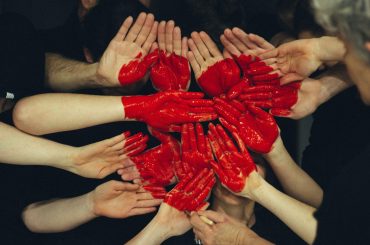
I am the daughter of someone who suffers with addiction. My Mother is a Bible believing, non-swearing, French speaking, dignified lady who has struggled with Doctor prescribed opioids and mental health issues for 30 plus years. I have also been through an addiction adjacent experience as a Mother; my son is almost 5 years in recovery from a prescription opiate dependency following an injury in football. I know the ups and downs, the misery in the midnight hour, the hopes and subsequent hopes dashed that one goes through when they love someone caught in the death grip of a substance dependency.
In the midst as well as the aftermath of some of the worst days of our lives as a family, I have gathered great strength and wisdom from the journey as well as those who carried me through my own recovery from the effects of it. I write not as one in recovery from a substance, but as one in recovery from the obsession with someone battling a substance. The goal of my heart as I continue my path to wellness is to share my experience, strength and hope with others who are walking it. I believe that to be crucial, because to quote Ram Dass, “We are all just walking each other home.”
Facing and navigating this road successfully, it is necessary to come to know the following:
You are not alone!
You are responsible for your own life, health, success and peace of mind; you just have to take the reins. The same goes for your struggling loved one. As hard as it is…don’t hitch your peace of mind and well being onto the roller coaster. Detach from it and work on your wellness. Learning that is the process of recovery. The healthier you get, the better chance they will have of getting healthy.
As long as there’s breath, there’s HOPE!
The 3 C’s of Nar Anon:
You didn’t Cause it, you can’t Control it, you can’t Cure it.
Cause: At this point blaming who, what, where, why and how the addiction started is futile. That only adds to the misery and distracts from handling it in functional, healthy ways. This pertains to past and present as much as the potential substance abuse. Don’t live in fear and think that by saying/doing the wrong thing you will send them spiraling back into the cycle. You are not the cause of that. Someone who wants to remain clean will do so regardless of stress or pressure. There will always be stress and pressure! The key is learning to cope without abusing a substance and that is up to them to develop. Emotionally tiptoeing around someone won’t prevent substance abuse any more than bulldozing and bullying will. Working a program is the way forward. You take care of you. Your priority is to make sure you are healthy and functional.
Control: Policing and making sure they are going to meetings, spending time with sober companions, doing what they are supposed to should only be something paid attention to for your own safety and boundaries. Taking control of their life, recovery or participating in the craziness as it occurs is not healthy for anyone.
Cure: Nothing you can do, say, think, or feel will heal or cure your loved ones addiction. You can affect their decisions with healthy boundaries and responses, by not enabling use or participating in negative, dysfunctional behavior and conflict. And by taking care of yourself. Beyond that…it is up to them to want it, to work a program and to recover.
Hopeful 3 C’s
Deep into it with my Loved One, I was taught that while I was powerless over the disease and didn’t Cause it, couldn’t Control or Cure it…I can Cope, I can Contribute (in good and bad ways) and I can Create loving, healthy dialogue.
My own version of hopeful 3 C’s.
I Coped in prayer, meditation, support groups, therapy and all sorts of stress relieving methods.
I Contributed by not participating in negative behavior or conflict.
And finally…
I Created healthy dialogue by keeping the bridge of communication open. I reached out as often as I felt comfortable to remind my Loved One that he was loved and I was in his corner, rooting for him to join the fight for his life. Keeping a list of available detox and treatment centers on hand for times of clarity, which are quick, subtle and pass without notice sometimes (when he’d say things like “You think I want to live like this? Or make statements related to remembering or wanting a better life). In those moments give those names and numbers, it’s a soft, effective intervention (See: Allies in Recovery teachings on CRAFT method).
Handling it that way gave me hopeful action to take without trying to control or go crazy forcing anything, while in the midst of it caring for myself, keeping a safe support system on hand for those moments of crisis or meltdown and always praying, hoping and believing for the best outcome.







2 Comments
Thank you so much for your article. As an Addictions Counselor and a Family Recovery Life Coach, I appreciated your willingness to move beyond Alanon and Naranon, which are a good foundation but don’t give the needed support to encourage communication. I am schooled in the BALM Family Recovery Method and we often say that the family members can be the loved one’s best chance at recovery OR their best chance at relapse….the family is always at choice. I would love to talk with you more about this and encourage you to check out the BALM program. There are weekly speakers for members and I would love to introduce you to the founder, Beverly Buncher. I think you might be an interesting guest speaker.
Here is the link to the BALM Comprehensive Program.
http://familyrecoveryresources.com/2015/03/13/balm-comprehensive-family-recovery-education-why-is-this-important-for-family-members/
Thank you so much, Annie. I can relate to much of what you wrote and your advice helps me with all the confusion I’ve berm experiencing with my addicted loved ones.